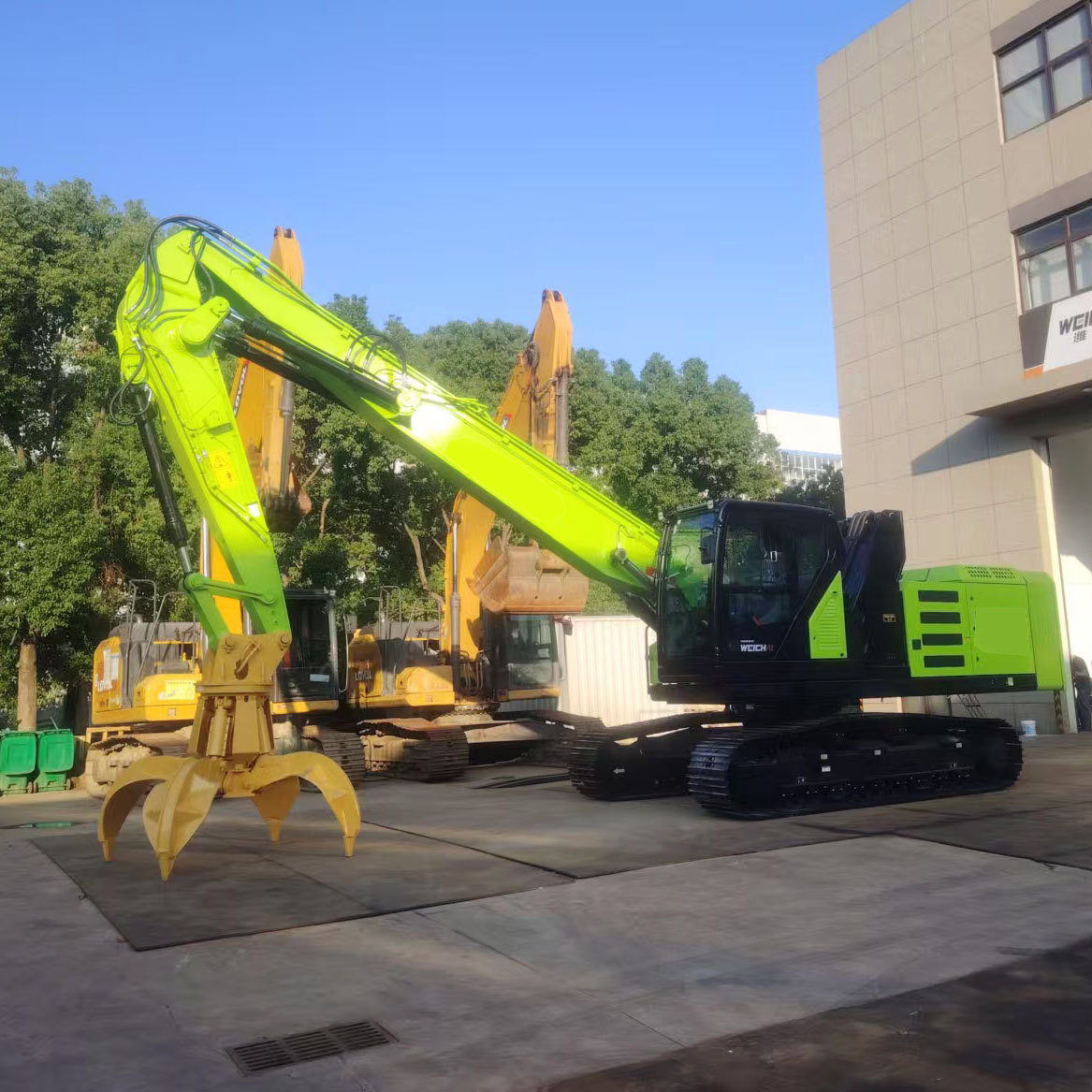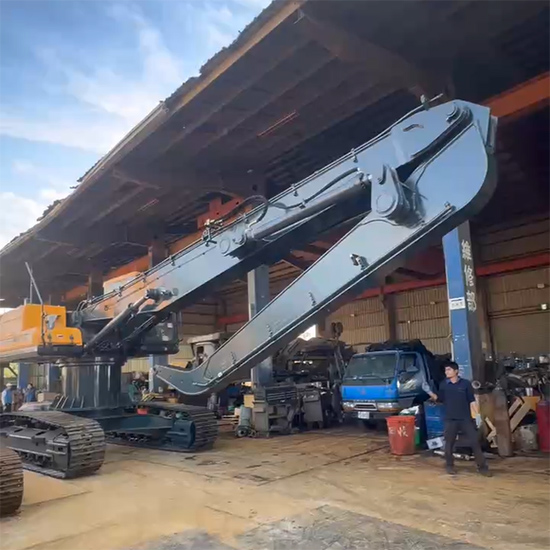A função principal do braço de garra de uma escavadeira é trabalhar com acessórios do tipo grampo para agarrar, transportar e empilhar materiais a granel, materiais em blocos ou objetos de formato irregular.
É um componente fundamental para ampliar a capacidade de movimentação de materiais de uma escavadeira.

Aplicações principais
Agarrar e manusear materiais: Ao levantar, abaixar, estender e girar o braço da garra, este agarra com segurança materiais como madeira, aço, pedra e entulho de construção, transportando-os para o local designado.
Empilhamento e classificação de materiais: Em armazéns e pátios de estocagem, os materiais podem ser empilhados com precisão ou classificados de forma que os materiais dispersos ocupem melhor o espaço disponível.

Carregamento e descarregamento assistidos: Substituindo o trabalho manual ou outros equipamentos, o carregamento e descarregamento de materiais de caminhões e vans é realizado automaticamente. Isso é particularmente útil para materiais com formatos irregulares, difíceis de carregar com uma caçamba.
Estrutura e princípio de funcionamento
A funcionalidade do braço de preensão depende de sua estrutura única e acionamento hidráulico, consistindo principalmente de duas partes:
Estrutura do braço: Normalmente, utiliza um design de braço telescópico ou dobrável com múltiplas seções, permitindo o ajuste flexível do raio de operação e da altura para se adequar a diversos espaços de trabalho. Conexão hidráulica do acessório: As linhas hidráulicas conectam-se às garras (como garras para toras, garras para aço e caçambas). O óleo hidráulico aciona a abertura e o fechamento das garras, controlando simultaneamente os movimentos de extensão, retração e elevação do braço, completando todo o processo de agarrar, levantar, transferir e soltar.
Aplicações comuns
Silvicultura: Manuseio e captura de toras, galhos e outras madeiras.
Reciclagem de aço/sucata: Processamento de aço, sucata de ferro e outros materiais metálicos.
Construção/Demolição: Manuseio de resíduos de construção, tijolos e blocos de concreto.
Portos/Pátios de Armazenamento: Empilhamento, carga e descarga de mercadorias ensacadas e minério a granel.